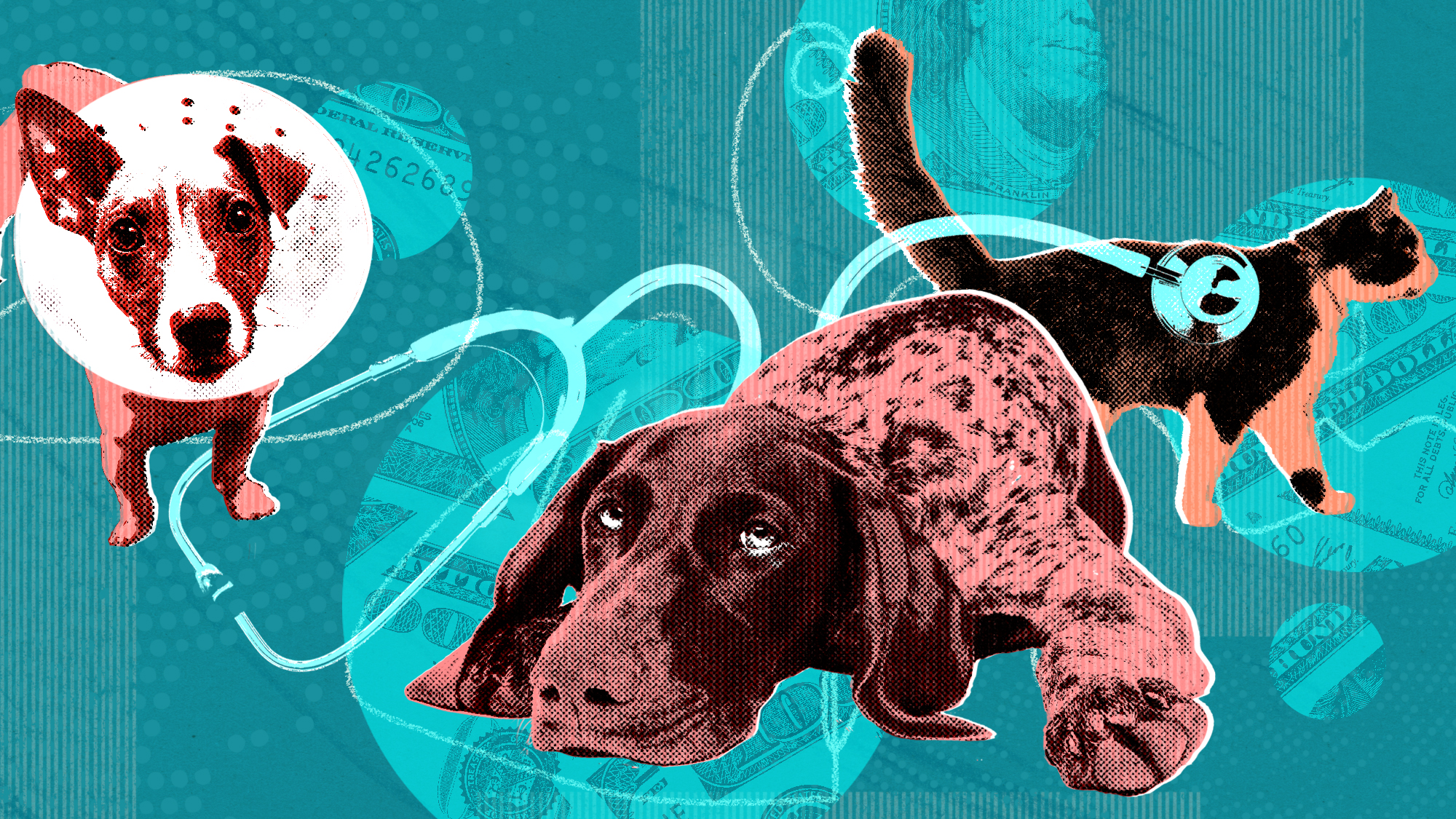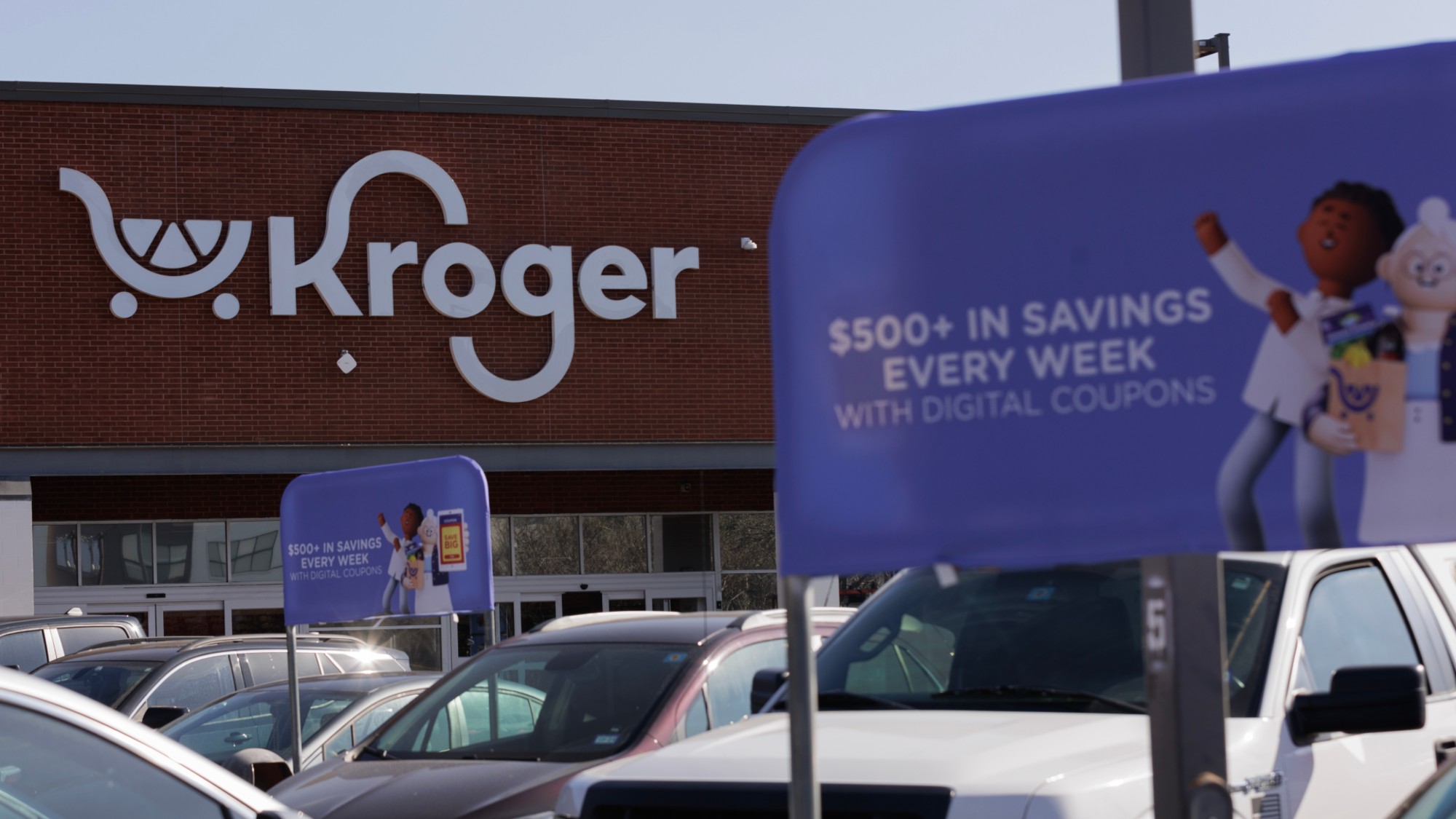Locked down: stores struggle to deter rising thefts
Just how bad of a problem is shoplifting?

A free daily email with the biggest news stories of the day – and the best features from TheWeek.com
You are now subscribed
Your newsletter sign-up was successful
The smartest insight and analysis, from all perspectives, rounded up from around the web:
Retailers are blaming rampant shoplifting for their shrinking bottom lines, said Hamza Shaban in Yahoo.com. "In waves of earnings calls" last week, major store chains like Dick's Sporting Goods, Target, Macy's, Home Depot, and Dollar Tree took pains to mention "the theme of missing merchandise" in hits to their quarterly profits. Videos of brazen smash-and-grab looting operations, sometimes involving hundreds of masked individuals, appear in the news almost weekly, adding to the sense of lawlessness. Retailers lost $94.5 billion in 2021 — nearly double the amount from 2018 — to "inventory shrink," an industry term that refers to lost or stolen merchandise. More retailers are responding by putting items in locked cases, and even taking often-stolen items out of stores.
These attacks aren't carried out by small groups of petty criminals, said Steven Malanga in City Journal. There is a sophisticated, illicit infrastructure underpinning this activity that's all about "reselling stolen items for profit." The merchandise "is sold by operators online — where they are hard to detect or track down." Often it winds up on large, anonymous marketplaces like Amazon and eBay. The illegal industry includes "'cleaners,' who strip goods of security devices, and money launderers, who process the transactions." But enabling this behavior are the states that have decriminalized low-level shoplifting under the misconception that most thieves "have turned to stealing to put food on the table." More than two-thirds of states now treat shoplifting as a misdemeanor if the value boosted is less than $1,000. Retailers aren't helping when they refer to this problem with jargon like "shrink," said The Wall Street Journal in an editorial. "Plain language about theft, rather than the euphemism," would make the public better understand how bad the problem is and build support for "policies that would do something about it."
The Week
Escape your echo chamber. Get the facts behind the news, plus analysis from multiple perspectives.

Sign up for The Week's Free Newsletters
From our morning news briefing to a weekly Good News Newsletter, get the best of The Week delivered directly to your inbox.
From our morning news briefing to a weekly Good News Newsletter, get the best of The Week delivered directly to your inbox.
"Shrink" is a purposely vague term, said Gabrielle Fonrouge in CNBC. Companies say repeatedly that "organized theft drove shrink" without explicitly breaking down "how much of the inventory loss is due to crime" or how it has changed over time. Shrink can just as easily be explained by "employee theft, administrative error, and inventory damage." In fact, internal pilfering has traditionally been the largest contributor to shrink, since retail employees "have access to entire cases of merchandise in backrooms" or warehouses.
But it's easier to blame gangs of criminals than to admit to having internal challenges or poor hiring practices. Shoplifting hurts more than just profits, said Stacy Torres in the Los Angeles Times. Shopping at Target or the supermarket used to be "my happy place," but "locked glass cabinets safeguarding merchandise are now ubiquitous." It's "demoralizing" to have to ask clerks to retrieve your deodorant. At my local Safeway, you have to enter through an automatic gate rigged with alarms if you try to exit the same way. Companies say these measures are there to make us all feel safer. But to me, they make it "feel like visiting a prison."
This article was first published in the latest issue of The Week magazine. If you want to read more like it, you can try six risk-free issues of the magazine here.
A free daily email with the biggest news stories of the day – and the best features from TheWeek.com
-
 ‘Restaurateurs have become millionaires’
‘Restaurateurs have become millionaires’Instant Opinion Opinion, comment and editorials of the day
-
 Earth is rapidly approaching a ‘hothouse’ trajectory of warming
Earth is rapidly approaching a ‘hothouse’ trajectory of warmingThe explainer It may become impossible to fix
-
 Health insurance: Premiums soar as ACA subsidies end
Health insurance: Premiums soar as ACA subsidies endFeature 1.4 million people have dropped coverage
-
 Trump wants a weaker dollar, but economists aren’t so sure
Trump wants a weaker dollar, but economists aren’t so sureTalking Points A weaker dollar can make imports more expensive but also boost gold
-
 The longevity economy booms as people live longer
The longevity economy booms as people live longerThe Explainer The sector is projected to reach $27 trillion by 2030
-
 Texas is trying to become America’s next financial hub
Texas is trying to become America’s next financial hubIn the Spotlight The Lone Star State could soon have three major stock exchanges
-
 How could worsening consumer sentiment affect the economy?
How could worsening consumer sentiment affect the economy?Today’s Big Question Sentiment dropped this month to a near-record low
-
 Musk wins $1 trillion Tesla pay package
Musk wins $1 trillion Tesla pay packageSpeed Read The package would expand his stake in the company to 25%
-
 From candy to costumes, inflation is spooking consumers on Halloween this year
From candy to costumes, inflation is spooking consumers on Halloween this yearIn the Spotlight Both candy and costumes have jumped significantly in price
-
 Rising costs are making it harder for people to afford pets
Rising costs are making it harder for people to afford petsUnder the Radar Shelters are filling up as a result
-
 Grocery stores under fire for overcharging during cost-of-living crisis
Grocery stores under fire for overcharging during cost-of-living crisisThe Explainer A recent investigation has put the spotlight on Kroger, but it is not the only chain being pinpointed